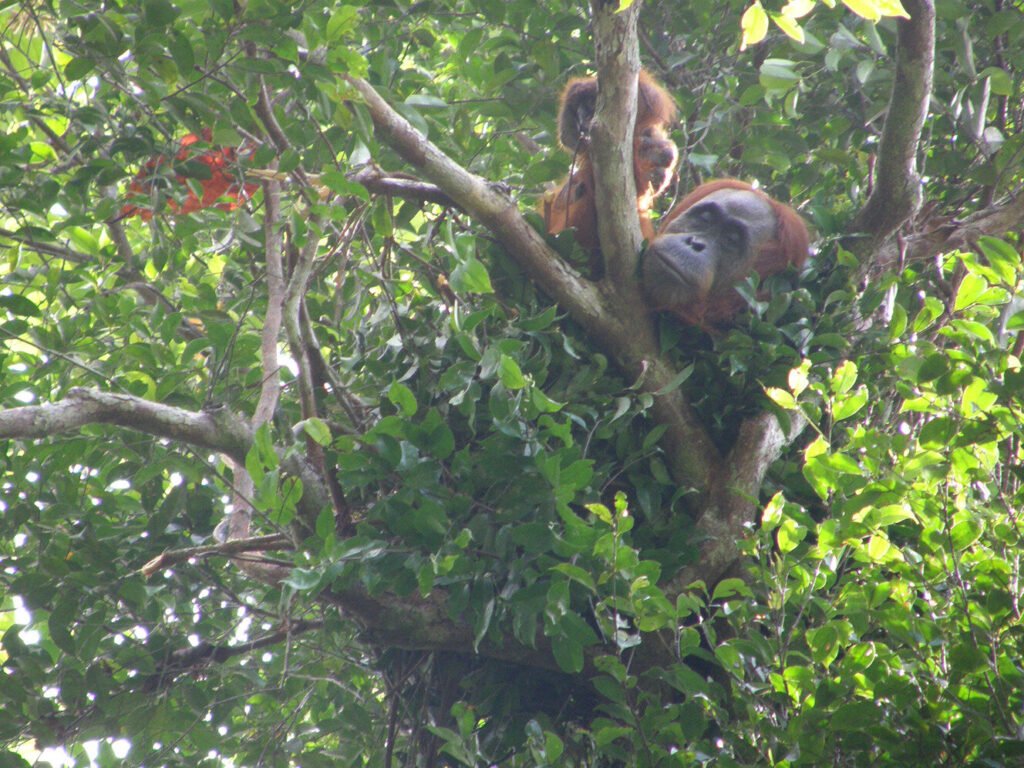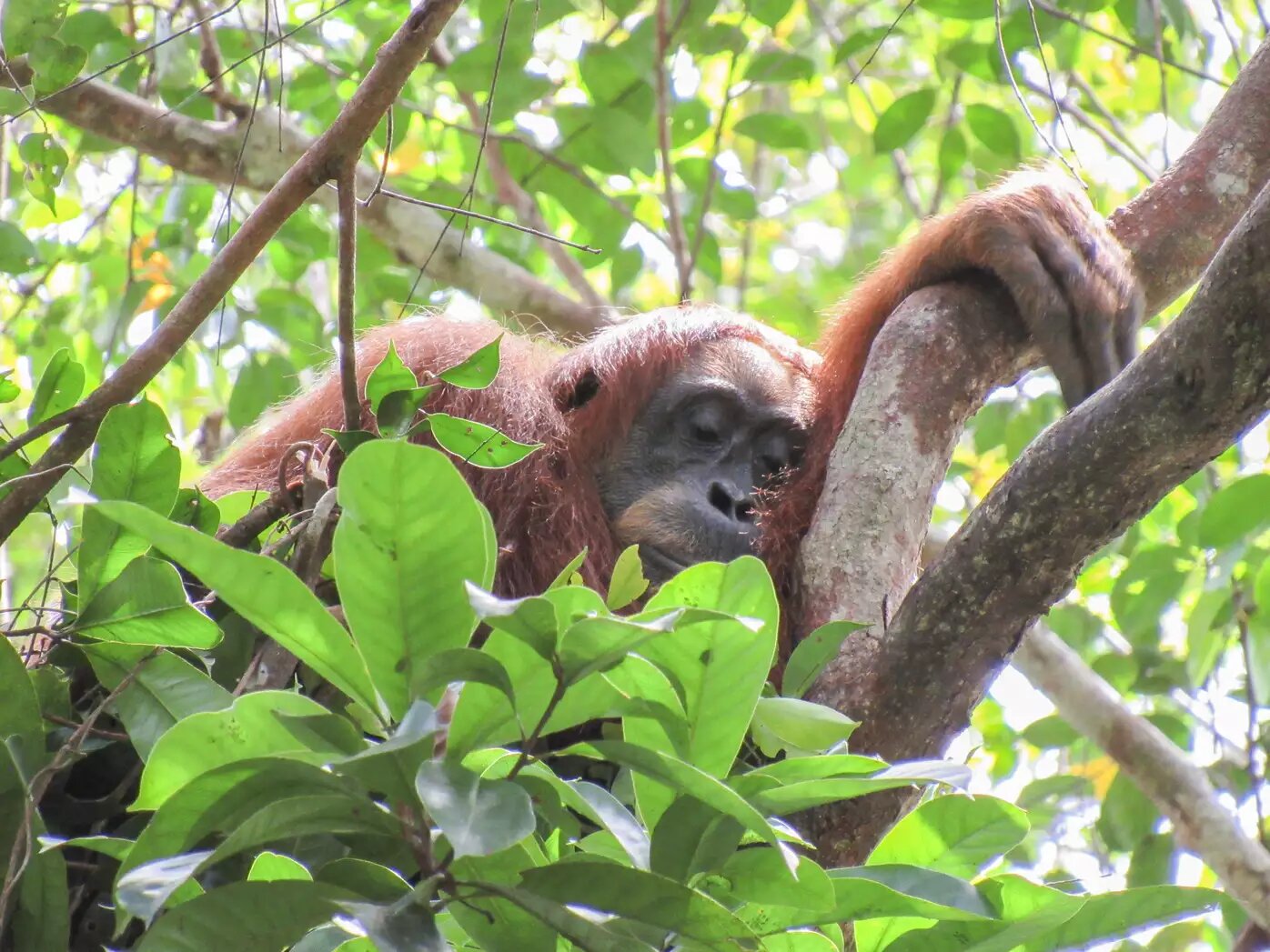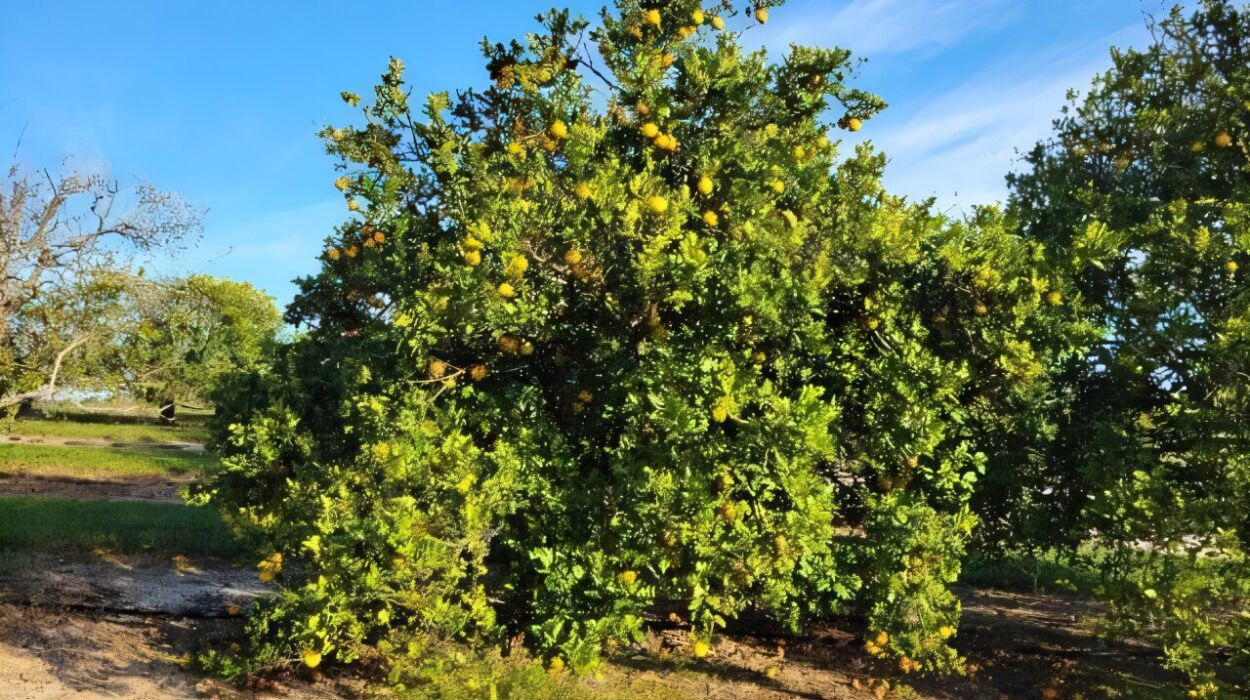Anyone who’s ever had a bad night’s sleep knows the next day can feel like moving through molasses—your body aches, your mind fogs, and even simple tasks feel exhausting. As it turns out, we’re not alone in this struggle. New research reveals that some of our closest relatives in the animal kingdom—wild orangutans—face similar challenges. And their response? A familiar one: they take a nap.
Scientists from the Max Planck Institute of Animal Behavior and the University of Konstanz in Germany, together with researchers from Universitas Nasional in Indonesia, have found that when orangutans miss out on a good night’s rest, they make up for it with longer naps the next day. The findings, published in the journal Current Biology, offer not only a fascinating glimpse into the daily lives of orangutans, but also new clues about the evolution of sleep in primates—humans included.
Tracking Sleep High in the Treetops
The research team spent over 14 years in the Indonesian rainforest, observing 53 adult orangutans in the wild. At the Suaq Balimbing Monitoring Station in Sumatra, they meticulously documented 455 days and nights of orangutan behavior. But unlike laboratory studies, tracking sleep in the jungle isn’t as simple as attaching electrodes or watching through one-way glass.
“From our point of view on the ground, we usually can’t see orangutans at all in their night nests,” said Dr. Caroline Schuppli, senior author and group leader at the Max Planck Institute. “But we can hear them rustling around, getting comfortable. Eventually, everything goes quiet and still. And the reverse happens in the morning.”
Every night, orangutans craft elaborate sleeping nests high in the rainforest canopy. These arboreal beds, constructed by bending and weaving branches, are complete with leafy mattresses and even pillows. Mothers sleep with their nursing infants, but adult orangutans otherwise sleep alone. These nests become silent cradles of rest—essential for recharging after long days spent climbing, foraging, and navigating complex social dynamics.
A Surprising Sleep Schedule
Using the absence of movement and sound as a proxy for sleep, the researchers determined that wild orangutans sleep for nearly 13 hours on average each night. This might sound luxurious by human standards, but there’s a catch: orangutan sleep is easily disrupted.
The study found that certain factors—like colder nighttime temperatures, longer daily travel distances, and even just sleeping near another orangutan—were linked to shorter sleep periods.
“We thought it was really interesting that proximity to other orangutans led to less sleep,” said Alison Ashbury, the study’s first author. “Imagine staying up late with friends or being woken up by a snoring roommate—it seems orangutans deal with the same kinds of trade-offs.”
In the wild, sleep isn’t just about rest; it’s a balancing act between social needs, environmental challenges, and biological demands. And when nighttime sleep falls short, orangutans have a clever backup plan.
When All Else Fails, Nap
The researchers wanted to understand how orangutans recover from a poor night’s sleep. The answer, it turns out, is through what we might call the “power nap.” After shorter sleep the night before, orangutans were more likely to rest during the day. Even more compelling, they napped longer—between 5 to 10 extra minutes for every hour of sleep they lost.
“Just like humans, a short nap can provide orangutans with meaningful physiological and cognitive recovery,” said Meg Crofoot, co-author and director at the Max Planck Institute. “It’s a flexible, adaptive way to bounce back.”

And they don’t just snooze on branches. Orangutans build special day nests for these naps—simpler, faster versions of their nighttime nests. While they take less than two minutes to build, these mini-beds still provide stability and comfort. According to Schuppli, when researchers spotted an orangutan napping in one of these nests, their bodies were relaxed and eyes closed. “They really do appear to be sleeping,” she said.
Smarter Sleep for Smarter Apes
There may be a connection between these naps and orangutan intelligence. The Suaq orangutans are known for advanced tool use and cultural behaviors—rare traits in the animal kingdom. These cognitively demanding lifestyles may increase their need for recovery, especially from mental fatigue.
“Among all orangutan populations studied, the Suaq group shows the greatest behavioral complexity,” said Schuppli. “This may be why they build more day nests. Either they need the naps to support their mental performance, or their intelligence is partly possible because they rest and recover more often.”
Unlike other primates who live in tight social groups, orangutans are semi-solitary. This gives them greater freedom to nap when and where they choose, without coordinating schedules. The study found that on 41% of observed days, orangutans took at least one nap, averaging about 76 minutes in total.
Sleep as a Survival Tool
While laboratory studies have helped scientists understand the neural and physiological functions of sleep, this research brings that knowledge into the natural world. Crofoot, who is leading a broader project on sleep in wild animals, believes this is essential to understanding how sleep evolved.
“Why did animals—from jellyfish to spiders to humans—evolve to spend so much time in a vulnerable, unconscious state?” she asks. “If we want to answer that, we have to study sleep not just in labs, but in the wild, where it evolved under real pressures.”
In orangutans, we see an ancient but familiar struggle: the need to rest, the push to keep going, and the clever adaptations that arise when sleep becomes scarce. Their behavior bridges millions of years of evolution to remind us that sleep isn’t just a luxury—it’s a strategy for survival.
A Mirror in the Forest
In the end, this research offers more than insights into the orangutan’s day. It offers a mirror. We nap when we’re exhausted. We lose sleep when we’re cold, stressed, or socializing. We build beds, seek quiet, and wake up groggy when someone nearby snores.
In these jungle treetops, the rhythm of life doesn’t feel so far from our own. And maybe that’s the real power of this study—not just in what it teaches us about orangutans, but in how it helps us understand the deeply biological, profoundly shared human need for rest.
Reference: Alison M. Ashbury et al, Wild orangutans maintain sleep homeostasis through napping, counterbalancing socio-ecological factors that interfere with their sleep, Current Biology (2025). DOI: 10.1016/j.cub.2025.05.053






